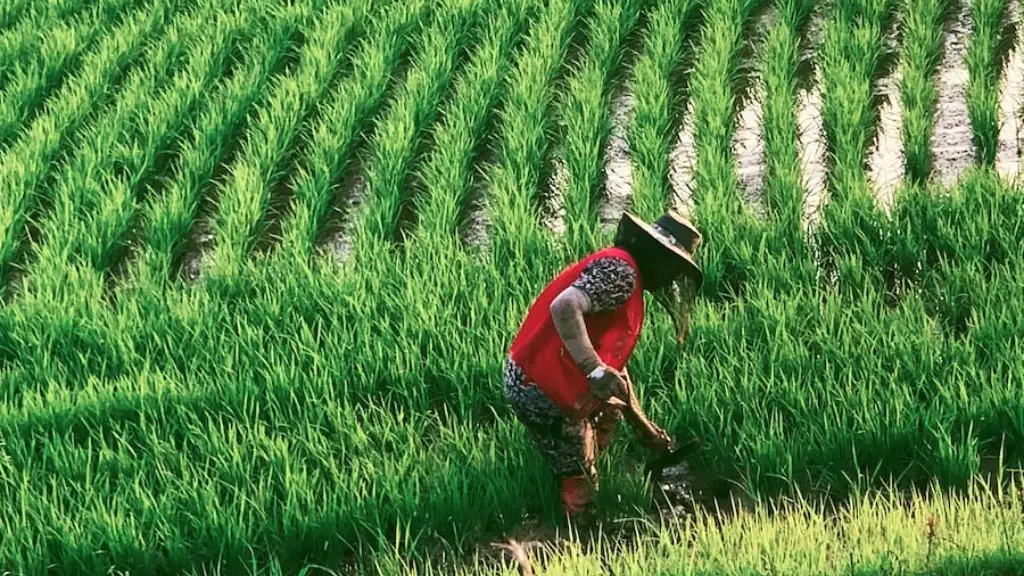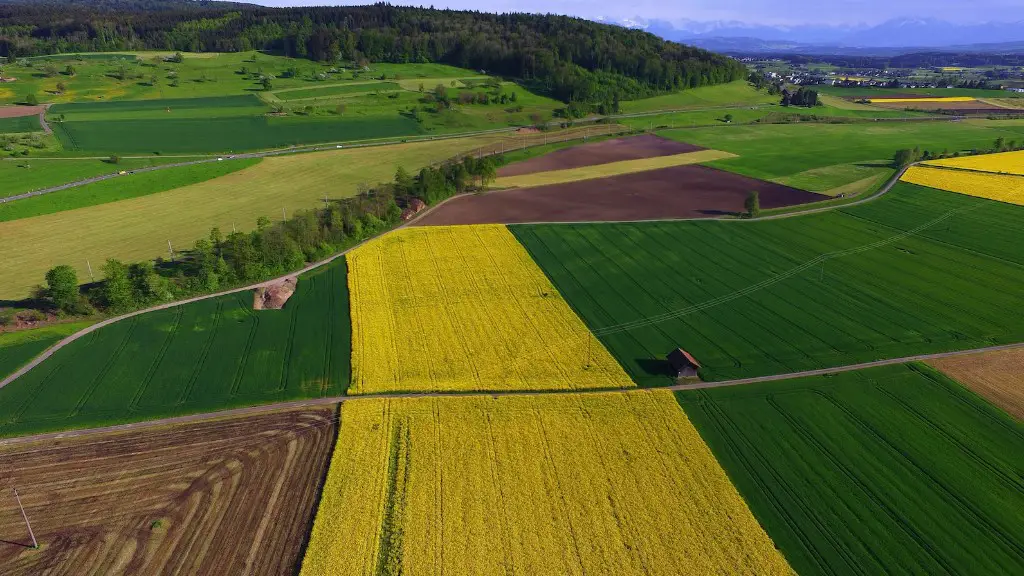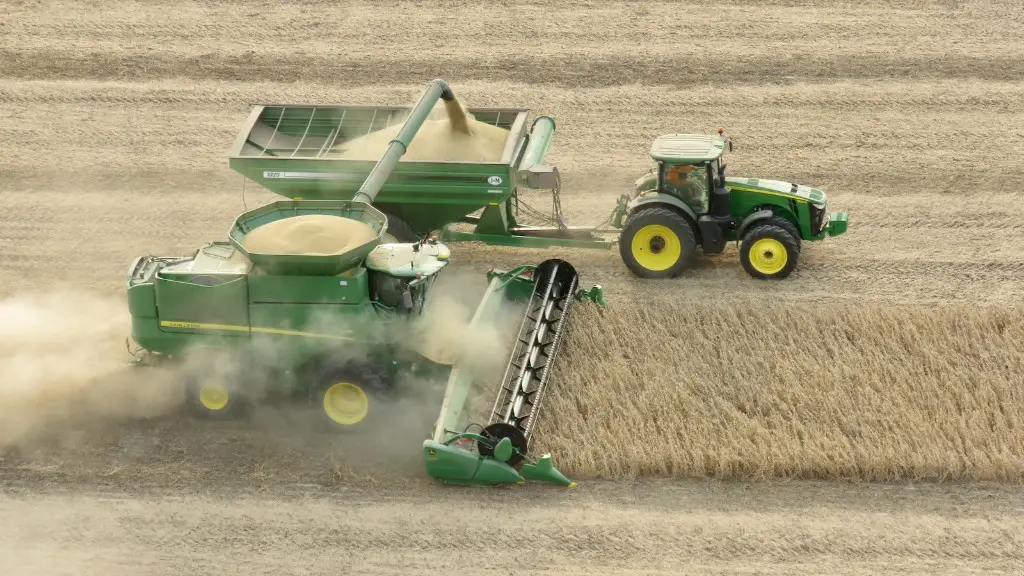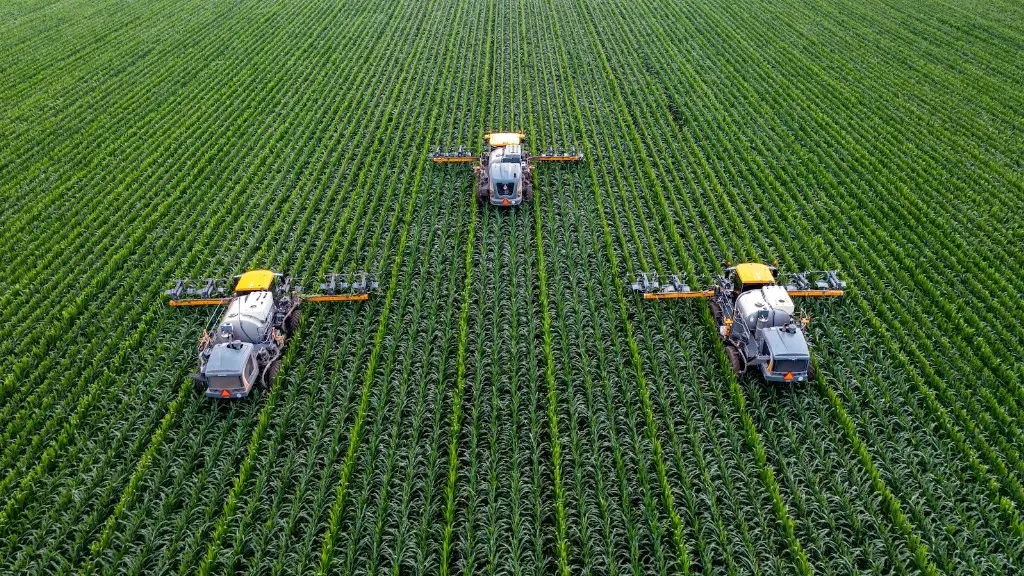Agriculture has been a vital part of the human experience since the dawn of civilization. It is the process of producing food, fiber, fuel, and other commodities by raising crops and livestock. Agriculture is a critical component of the economy, providing jobs for millions of people and supplying the raw materials that industries need to produce their goods. Given its importance, it is no surprise that agricultural productivity is one of the key drivers of economic growth. In other words, when farmers are able to produce more food and other crops, the economy as a whole benefits. There are a number of reasons why agriculture is good for the economy. First, it provides essential goods and services that we all need. without agriculture, we would not have the food we need to survive. In addition, agriculture provides the raw materials that industries need to produce their goods. For example, the textile industry relies on cotton, which is a product of agriculture. second, agriculture is a major source of employment. Farmworkers make up a significant portion of the workforce in many developing countries. In the United States, agriculture employs more than two million people. third, agriculture is a key driver of economic growth. When farmers are able to produce more food and other crops, the economy as a whole benefits. fourth
There are many reasons why agriculture is good for the economy. Agriculture provides jobs for people in the agricultural sector, and those jobs have a ripple effect throughout the economy. Agriculture also provides food and other products for people to consume, and it can be a major export for countries. Agricultural products are used in a variety of industries, including food manufacturing, agriculture, and even cosmetics.
How does agriculture benefit the economy?
The agricultural and food sectors are a vital part of the US economy, employing over211 million Americans. On-farm employment accounts for about 26 million of these jobs, or 13 percent of total US employment. The sector is expected to continue to grow in the coming years, providing even more opportunities for American workers.
Farming and ranching are important for many reasons. They provide food and fiber for human needs, and can also promote environmental stewardship and enhance quality of life for farm families and communities. Increasing profitable farm income can be a challenge, but there are many ways to do this, including increasing production, promoting environmental stewardship, and improving quality of life for farm families and communities.
What are 3 reasons why agriculture is important
1. It’s the main source of raw materials: Agriculture is the main source of raw materials for many industries, including the food, textile, paper, and biofuels industries.
2. It’s important to international trade: Agriculture is a key component of international trade, with agricultural products making up a significant portion of global trade.
3. It plays a big role in a nation’s revenue: Agriculture is a major source of revenue for many countries, with agricultural products making up a significant portion of a country’s exports.
4. It provides employment: Agriculture employs a significant number of people around the world, with agricultural jobs accounting for a significant percentage of employment in many countries.
5. It’s crucial to a country’s development: Agriculture is essential to the development of many countries, as it is a key source of food, income, and employment.
6. It can help heal the environment: Agriculture can play a role in healing the environment, as it can help to restore degraded land and improve water quality.
7. It goes hand-in-hand with war: War and agriculture have often been linked, as agriculture can be used to support a country’s war effort.
8. It’s
Agriculture is central to fostering economic growth, reducing poverty, and improving food security in the Southern African region. More than 70 percent of the rural population depends on agriculture for their livelihoods, and regional economic growth has been constrained by poor performance in the agriculture sector.
The sector is beset by a range of challenges, including low productivity, limited access to markets and inputs, and climate change. In order to address these challenges, the Southern African Development Community (SADC) has adopted an agricultural development strategy known as the Comprehensive Africa Agriculture Development Programme (CAADP).
The CAADP seeks to increase agricultural productivity and competitiveness, while also ensuring that the sector is more responsive to the needs of small-scale farmers. In order to achieve these objectives, the CAADP is focusing on a number of key areas, including strengthening agricultural research and extension, improving access to markets and inputs, and promoting climate-smart agriculture.
The CAADP is an important strategy for achieving sustainable economic growth and poverty reduction in the Southern African region. However, its success will depend on the continued commitment of SADC member states to its implementation.
How does agriculture reduce poverty?
Agricultural growth is often touted as a way to reduce poverty, as it can lead to increased demand for labor and higher wages. However, it is important to note that the very poorest people primarily benefit from agricultural growth. This is because they are the most likely to be employed in the agricultural sector, and thus stand to gain the most from increased demand for labor and higher wages. In other words, agricultural growth is a way to reduce poverty by providing opportunities for the poorest people to earn more money.
The agricultural sector plays a vital role in a country’s economic growth cycle. This sector has already made a major contribution to the economic growth of advanced countries and its position in the economic development of less-developed countries is vitally important. The agricultural sector provides the raw materials for many industries and is a major source of employment. It is also a major source of export earnings for many countries. The sector is therefore of key importance in the economic development of a country.
How does agriculture help us to live?
Agriculture is the main source of food and fabrics for the world. Products like cotton, wool and leather come from agriculture. It also provides wood for construction and paper products. Different parts of the world have different agricultural methods.
The more food that is available, the more people can be supported. This is because people need food to survive and if there is an abundance of food, then more people can be fed. In addition, agriculture allows people to be tied to their land. This means that they can farm and produce food for themselves and their community. Small settlements can grow into towns and cities because there is enough food to support them. This is possible because agriculture produces enough food for people to pursue other interests besides finding food.
How did agriculture impact society
The agricultural revolution was a major turning point in human history. It allowed for the domestication of plants and animals, which led to the growth of cities and civilizations. The increase in food production also allowed for a population explosion, from just five million people 10,000 years ago to over seven billion today.
Agriculture is the primary source of raw materials for key businesses including cotton and jute fabric, sugar, tobacco, and edible and non-edible oils. These businesses rely on these materials in ways that many people have no idea of. This is why it is important to support the agricultural industry, as it is a fundamental part of the economy.
What will happen without agriculture?
Agriculture is the foundation of civilization and any stable economy. It is the backbone of every city, stock market, banks, university, church, and army. All of these other institutions rely on agriculture to function and would not be possible without it.
There are many pros and cons to the development of agriculture. One of the main pros is that it allowed humans to specialize in different fields and become experts in their fields. This allowed for the development of artists, leaders, and scribes. Another pro is that it led to the domestication of wheat, corn, and rice. Agriculture also allowed for the development of civilizations. One of the main cons of agriculture is that it can lead to conflicts over access to the food supply. Another con is that weather can damage crops.
How does agriculture change people’s lives
The development of Agriculture allowed early humans to produce enough food that they no longer had to migrate to their food source. This meant they could build permanent structures, and develop villages, towns, and eventually even cities. Closely connected to the rise of settled societies was an increase in population.
Agriculture affects the environment in many ways. It can lead to soil erosion, water pollution, contribute to climate change, and deforestation. These impacts can be both positive and negative. For example, soil erosion can improve soil fertility, while water pollution can lead to contaminated drinking water. It is important to be aware of these impacts so that we can take steps to mitigate them.
What is the main purpose of agriculture?
Agriculture is the heart of every economy. It has been the main source of livelihood for the majority of the people in the world. Agriculture encompasses crop and livestock production, aquaculture, fisheries and forestry for food and non-food products. It is the key development in the rise of sedentary human civilization, whereby farming of domesticated species created food surpluses that enabled people to live in cities. Today, agriculture is a vital part of the global economy, providing food, feed, fiber and fuel. It is also a major source of employment and income for billions of people around the world.
It is estimated that the agriculture industry employs over 1.3 billion people worldwide, which is approximately one third of the world’s workforce. The industry is also responsible for producing food for both human and animal consumption. In addition to providing food, the agriculture industry also provides many other products and services including:
– Raw materials for manufacturing and industry
– Fuel for transportation
– Clothing
– Fertilizers
– Food for animals
– #1 Source of employment in many developing countries
The agriculture industry is vital to the world economy and the way of life for much of the world’s population.
What is the main need of agriculture
Agricultural sector is very important for the economic growth of a country. It provides food security and employment to a large number of people. It also helps in poverty alleviation. Agricultural sector contributes a lot to the GDP of a country.
It is true that the constraints in agriculture make the productivity and return complex but there is still a high untapped potential in India’s agriculture sector. Efforts are being made to convert all the challenges in agriculture into opportunities and this process is the future of agriculture. The government is taking many steps to improve the conditions of farmers and to make farming more profitable. The introduction of latest technology, better irrigation facilities, and training of farmers are some of the measures being taken to achieve this goal. The agricultural sector still has a lot of potential and with the right policies in place, it can be a major contributor to the country’s economy.
Warp Up
Agriculture is good for the economy because it provides food, fiber, and other products for people to consume. It also creates jobs for people who work in the agricultural sector. Additionally, agriculture can help to diversify an economy and make it more stable.
Agriculture is good for the economy for many reasons. It provides jobs for people in both the agricultural sector and the related industries. It also generates income and exports for a country. In addition, agriculture helps to diversify a country’s economy and can provide a food security buffer in times of economic crisis.




